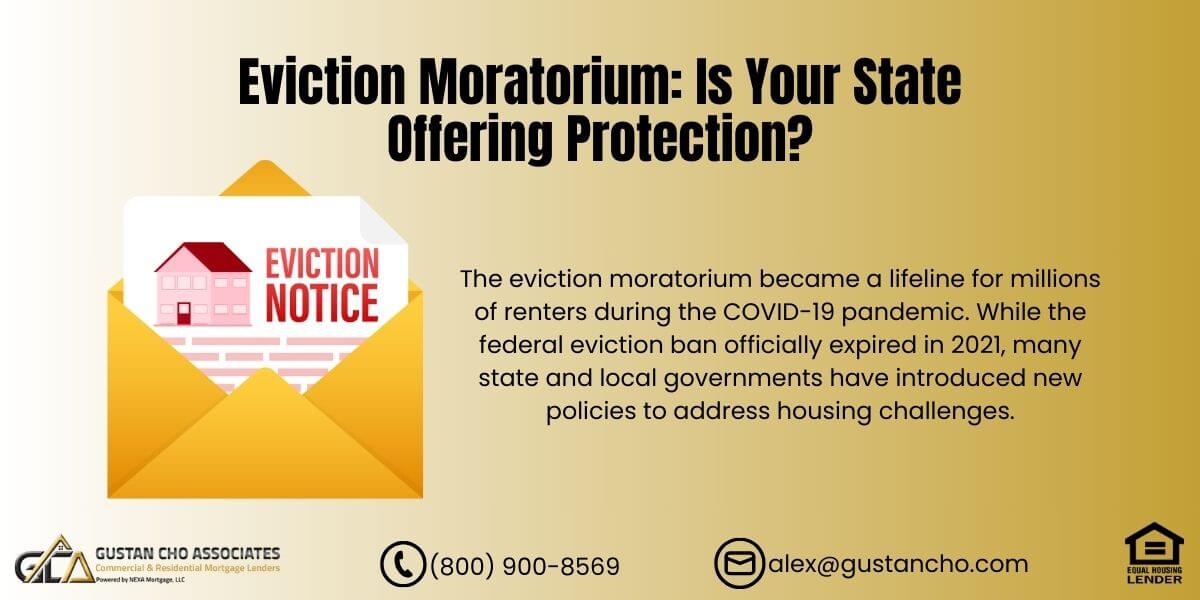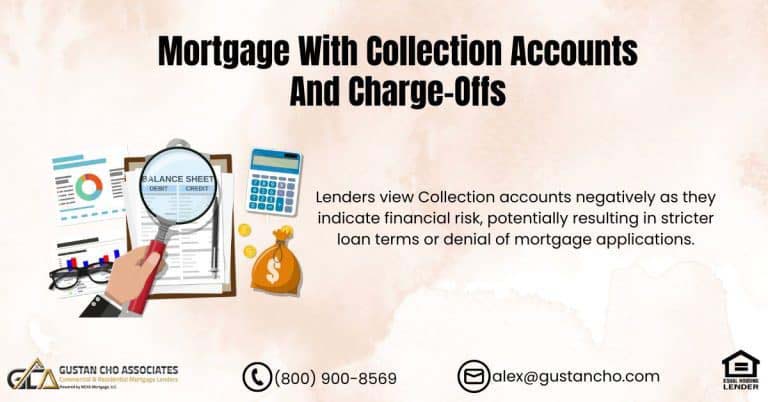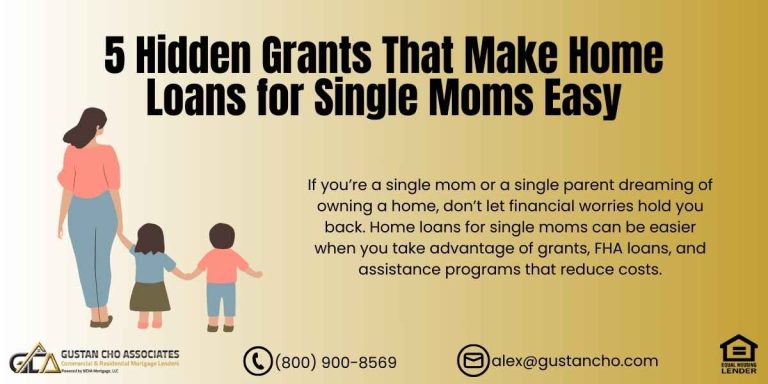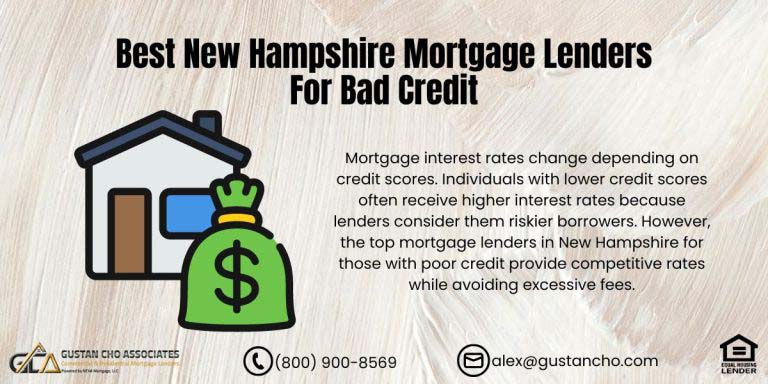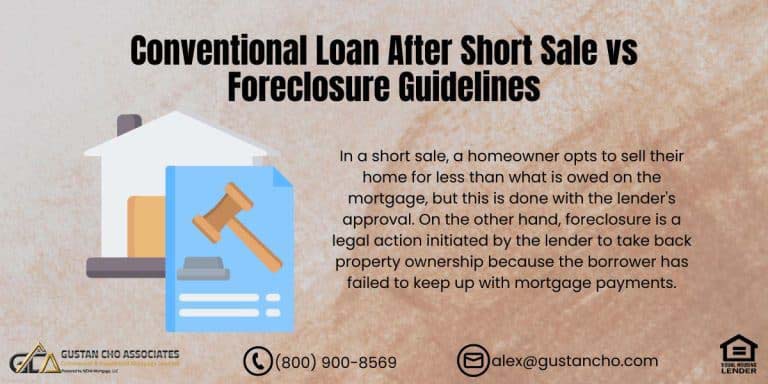Eviction Moratorium Updates: What Renters and Homeowners Need to Know in 2024
The eviction moratorium became a lifeline for millions of renters during the COVID-19 pandemic. While the federal eviction ban officially expired in 2021, many state and local governments have introduced new policies to address housing challenges.
If eviction moratoriums have impacted you or you are considering homeownership as an option, this guide will provide you with the latest information, clarify the implications for renters and landlords in 2024, and highlight how moving towards owning a home could be the right decision.
What Was the Eviction Moratorium?
The eviction moratorium was a temporary federal policy created by the Centers for Disease Control and Prevention (CDC) in September 2020 to prevent widespread evictions during the COVID-19 pandemic. It protected renters from losing their homes due to unpaid rent as long as they met certain criteria. The goal was simple: to prevent homelessness and reduce the spread of COVID-19 in crowded shelters.
To qualify for protection under the federal eviction moratorium, renters had to:
- Make every effort to secure rental assistance.
- Struggling to cover rent because of significant income reduction resulting from the pandemic.
- Attempt partial rent payments where possible.
- Face homelessness or the need to move into overcrowded housing if evicted.
While the federal program ended in 2021, states like California, New York, and Illinois have continued offering protections, though these policies vary widely.
Take First Step Toward Making Your Dream A Reality
Apply Now And Get recommendations From Loan Experts
2024 Updates: State and Local Eviction Protections
Although the federal eviction moratorium is no longer in place, many states have stepped in with localized solutions:
- California: Renters in California who apply for rental assistance are protected from eviction until their applications are processed. As of 2024, landlords must still meet certain requirements before initiating evictions.
- New York: New eviction laws emphasize tenant protection and provide financial assistance for renters in need. Programs like the Emergency Rental Assistance Program (ERAP) continue to support tenants needing assistance.
- Washington, D.C.: A permanent ban on evictions for renters owing less than $600 remains in effect.
- Illinois: Renters and landlords can still access housing assistance funds, ensuring evictions are avoided whenever possible.
If you’re worried about eviction in 2024, your first step should be to contact your state’s housing authority or local government for updated protections.
What Does the End of the Federal Eviction Moratorium Mean for Renters?
The end of the federal eviction moratorium marked a turning point. With no nationwide safety net, renters now face challenges such as:
- Increased Eviction Rates: Millions of Americans were left vulnerable after the federal protections ended, with 3.6 million renters at risk in 2021. Many states still report high eviction numbers due to rent arrears.
- Tighter Rental Requirements: Finding a new rental property can be challenging if you’ve been evicted. Many landlords require higher credit scores, proof of steady income, and strong references before approving applications.
Why This Might Be the Perfect Time to Buy a Home
If you’ve struggled with rental uncertainties, owning a home might provide the stability you seek. With mortgage rates fluctuating in 2024, now could be the ideal time to explore your options. Here’s why buying a home could be a game-changer:
- No More Landlord Worries: Owning your home means you’re in control. No more surprise rent increases or eviction threats.
- Affordable Options: Many lenders offer programs for first-time buyers with as little as 3% down. If you’re concerned about previous financial difficulties, organizations such as Gustan Cho Associates focus on providing mortgage loans to individuals with low credit scores or unusual financial circumstances.
- Building Equity: Every mortgage payment contributes to your financial future. Rather than paying rent to a landlord, you are putting money into your assets.
How to Qualify for a Mortgage in 2024
If buying a home feels like a dream, we’re here to help make it a reality. Here’s what you’ll need to get started:
- Review Your Credit Score: Don’t worry if your score isn’t perfect. Programs like FHA loans allow credit scores as low as 580; some lenders even consider scores below that.
- Stable Income: Lenders want to see consistent income, whether from a job, self-employment, or other sources. If you’ve had interruptions in income, don’t panic—lenders like Gustan Cho Associates specialize in unique cases.
- Debt-to-Income Ratio (DTI): This ratio compares your monthly debt payments to your income. FHA loans allow DTI ratios as high as 57%, giving you more flexibility.
- Down Payment Assistance: Many first-time homebuyers are eligible for grants or programs that cover part of their down payment. Illinois, for example, offers assistance through the IDHA program.
Is Now the Right Time to Transition from Renting to Owning?
For many renters affected by the eviction moratorium, buying a home feels like taking control of their future. If you’ve been thinking about homeownership but aren’t sure where to start, here are a few questions to consider:
- Can you afford the monthly mortgage payments, often lower than rent in today’s market?
- Do you meet the basic requirements for a mortgage, or do you need help rebuilding your credit?
- Are you ready to invest in your future rather than a landlord’s?
Start Your Process Towards Buying A Home
Apply Now And Get recommendations From Loan Experts
Landlord Challenges After the Eviction Moratorium
Landlords have faced their struggles since the expiration of the federal eviction moratorium. Many reported significant losses while waiting for rental assistance funds to reach them. If you’re a landlord considering refinancing or taking out a loan for property improvements, now could be the time to act.
The Future of Housing in the U.S.
The eviction moratorium reignited discussions about affordable housing in America. With housing prices stabilizing in 2024 and rental markets tightening, many Americans are rethinking their living situations. Whether you’re a renter exploring homeownership or a landlord managing new challenges, it’s clear that the housing landscape is evolving.
Let’s Take the Next Step Together
If you’re ready to leave rental uncertainty behind and explore the benefits of homeownership, we’re here to help. At Gustan Cho Associates, we specialize in working with borrowers in all financial situations. Whether you’re recovering from an eviction or navigating the mortgage process for the first time, we’ll guide you every step of the way.
Call us today at 800-900-8569 or email us at gcho@gustancho.com to start your journey to homeownership. Your future starts with a single step—let’s take it together.
Frequently Asked Questions About Eviction Moratorium:
Q: What is the Eviction Moratorium?
A: The eviction moratorium was a temporary federal policy that protected renters from being evicted due to unpaid rent during the COVID-19 pandemic. It ended in 2021, but some states still offer local protections.
Q: Are There Eviction Protections in 2024?
A: Yes, some states like California, New York, and Illinois still have localized protections for renters. For example, California renters applying for rental assistance cannot be evicted until their applications are processed.
Q: How Does the Eviction Moratorium Ending Affect Renters?
A: Without a federal eviction moratorium, renters face stricter rental requirements, higher eviction rates, and challenges finding new housing. Many landlords now require higher credit scores and proof of income to approve rental applications.
Q: Can Renters Evicted During the Pandemic Buy a Home?
A: Yes, renters who faced eviction during the pandemic can still qualify for a mortgage. Programs like FHA loans allow borrowers with lower credit scores or unique financial situations to become homeowners.
Q: Is Now a Good Time to Buy a Home?
A: Yes! With fluctuating mortgage rates and stabilizing home prices in 2024, this could be the perfect time to buy a home. If the feds announce future rate cuts, affordability may improve even further.
Q: What Do I Need to Qualify for a Mortgage in 2024?
A: You’ll need a credit score (FHA loans start at 580), stable income, a manageable debt-to-income ratio, and possibly a down payment. Many first-time buyer programs also provide down payment assistance.
Q: How Can Buying a Home Protect Me From Future Evictions?
A: Owning a home gives you control over your living situation. You’ll no longer face rising rents, eviction notices, or other landlord-related issues. If the feds announce future rate cuts, refinancing might make homeownership even more affordable.
Q: What are the Benefits of Homeownership Compared to Renting?
A: Homeownership allows you to build equity, avoid landlord issues, and enjoy stable housing costs. If the feds announce future rate cuts, you may secure an even lower mortgage rate.
Q: Can Landlords Still Get Assistance for Lost Rental Income?
A: Yes, many states continue to offer financial assistance programs for landlords. These programs help cover lost rent during the eviction moratorium period.
Q: How Will Future Interest Rates Affect Renters and Homeowners?
A: If the feds announce future rate cuts, renters might see slight rent relief, but homeowners will benefit more from lower mortgage rates. This could make buying a home even more attractive compared to renting.
This blog about “Eviction Moratorium: Is Your State Offering Protection?” was updated on November 19th, 2024.


